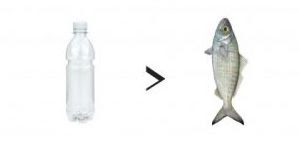A must-watch documentary!
‘’Want to know more about plastic pollution in the ocean? Watch this documentary to understand how your habits are changing our natural resource, the ocean.’’ This documentary, made by a journalist Graig Leeson, was initially a search for the blue whale in its natural habitat. Soon enough, Graig found something much more interesting, or rather disturbing, to document. Our impact on the ocean, the plastic pollution and how this affect marine life became the new focal point of this documentary. He and his team documented 20 places around the world to show to the public how our ocean is being impacted by our way of living. Besides all the disturbing and alarming images , Graig also shows us some of the solutions to make you and other people aware of how little you can do to make a big impact, such as not buying bottled water anymore. A must-watch documentary if you want to find out how easy it is to change your negative impact onto the ocean into a positive one! Is one...








